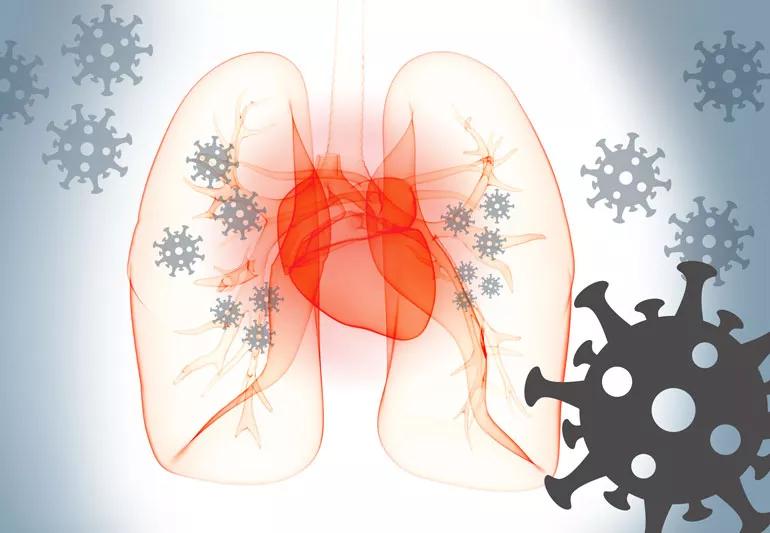Advertisement
How coronavirus can affect your heart and what you can do to protect it

This article was originally published on March 27, 2020. It was updated on May 6, 2020 to reflect new information about this rapidly evolving situation.
Advertisement
Cleveland Clinic is a non-profit academic medical center. Advertising on our site helps support our mission. We do not endorse non-Cleveland Clinic products or services. Policy
As the coronavirus (COVID-19) pandemic evolves, scientists are learning more about the virus and how it affects us. From almost the beginning, medical experts have recognized that older adults and people with existing medical conditions — including heart disease — are at higher risk from the new coronavirus.
For the tens of millions of U.S. adults with heart disease, that warning raises a lot of questions.
“We’re learning a lot about this disease every day,” says cardiologist Paul Cremer, MD. “That creates uncertainty for patients and for healthcare providers, but we can make recommendations based on the best information we have so far.”
The new coronavirus is a respiratory disease, meaning it mostly affects the lungs. But when the lungs aren’t working at full steam, the heart has to work harder to pump oxygen-rich blood around the body. That added stress can be dangerous for people with heart disease.
COVID-19 poses a greater risk to people who have underlying conditions, including:
People in those groups may be at higher risk of catching COVID-19. They’re also more likely to develop severe symptoms if they get sick.
Older adults with heart disease may be particularly vulnerable. But if you have heart disease at any age, you should be aware of the possible risks from COVID-19. “There’s a lot we don’t know yet. But it’s reasonable to assume that anyone with heart disease, including younger patients, is also at higher risk,” Dr. Cremer says.
Being at increased risk doesn’t mean you’re destined to get the disease — or that you will develop a serious case if you do catch it. But as usual, prevention is the best medicine.
“To reduce the odds of catching COVID-19, follow recommendations by the CDC, the WHO, and your local, state and federal governments,” Dr. Cremer says.
That means following best practices:
If you develop possible COVID-19 symptoms such as a cough and fever, here’s what you should (and shouldn’t) do next, Dr. Cremer says:
Different locales have different recommendations about who should be tested or hospitalized. Your doctor can advise you about what to do and where to go.
Advertisement
Some reports have suggested that certain heart medications might make it easier for the virus to multiply. But so far, there’s no evidence of that happening in human patients. Doctors are not recommending that patients make changes to their heart disease or high blood pressure medications, Dr. Cremer says.
“We don’t yet know how medications might affect the virus, but we do know it can be harmful if you stop taking the medications you use to control blood pressure, cholesterol, heart disease or diabetes,” he says.
One of the biggest risks to heart disease patients from coronavirus has nothing to do with being infected, Dr. Cremer adds: “I worry that some patients won’t seek out the urgent care or emergency treatment they need.”
Some people who experience heart symptoms might be reluctant to go to a clinic or emergency room during a pandemic. But you shouldn’t ignore signs of cardiac emergencies. Heart attacks, dissections, heart failure and arrhythmias are still occurring. And early treatment for heart problems can save your life. “If you have any concerning heart symptoms, please seek out care,” he says.
Dr. Cremer advises seeking treatment or reaching out to your doctor if you have any new symptoms, including:
Let’s be honest: During a global pandemic, it can be hard to stick to your usual routines. But maintaining a heart-healthy diet and exercise habits is as important as ever, Dr. Cremer says.
The American Heart Association recommends 150 minutes of moderate aerobic exercise a week — about 20 to 30 minutes, five to seven days a week.
“We have to be particularly cautious now in terms of social distancing, but it’s essential to get physical activity. Getting out for a walk is good for overall health, and also for our mental health as we’re dealing with this,” Dr. Cremer says.
While the pandemic won’t last forever, you need your heart for the long haul, he adds. “We’re going to get through this, so we shouldn’t lose sight of our long-term health.”
Advertisement
Learn more about our editorial process.
Advertisement

Factors like temperature, energy levels and sleep quality play a role in determining whether working out in the morning or evening is best for you

Treatments have improved outcomes for a condition once viewed as fatal

The medication is ineffective and — in the case of animal ivermectin — potentially dangerous

Obesity, age and preexisting heart conditions can all raise your risk of cardiovascular disease during pregnancy

Xylitol in processed food can increase risk of heart attack and stroke — but there’s no danger in xylitol in oral care products

Updated vaccinations are recommended to better protect against the evolving virus

Enteroviruses are often to blame for summer colds, leading to a runny nose, sore throat and digestive symptoms

If your provider has ruled out a serious cause, you can treat chest pain at home with antacids, inhalers or anti-inflammatory medications

Focus on your body’s metabolic set point by eating healthy foods, making exercise a part of your routine and reducing stress

PFAS chemicals may make life easier — but they aren’t always so easy on the human body

While there’s little risk in trying this hair care treatment, there isn’t much science to back up the claims